
Snow Advisory. The NWS has issued a snow advisory for much of central Minnesota, including the northern suburbs of the Twin Cities. Winter Storm Warnings are posted for much of South Dakota. The latest watches/warnings/advisories are here.
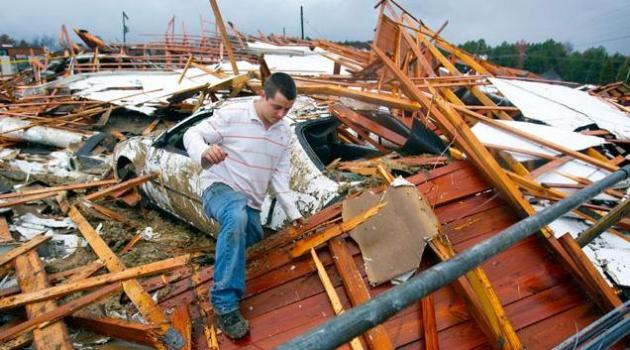
25 tornadoes Tuesday-Wednesday from Louisiana to the Carolinas. Photo courtesy of AP and ABC News.
549 tornado fatalities in 2011 in the USA, second only to 1925 for the most tornado deaths in one year.
"This year already ranks as the deadliest from tornadoes since the National Weather Service began its database in 1950", he said. "The number of fatalities this year directly due to tornadoes is 100 times greater than the recent decades' annual average," Carbin said. - Reuters article below on 2011's record tornado death toll.
-30 F. "high" temperature at Fairbanks, Alaska on Thursday. This is the 2nd earliest -30 F. reading on record for Fairbanks, according to the local NWS office.
-41 F. low temperature Thursday at Fairbanks, the first -40 F. reading at Fairbanks in November since 1994.
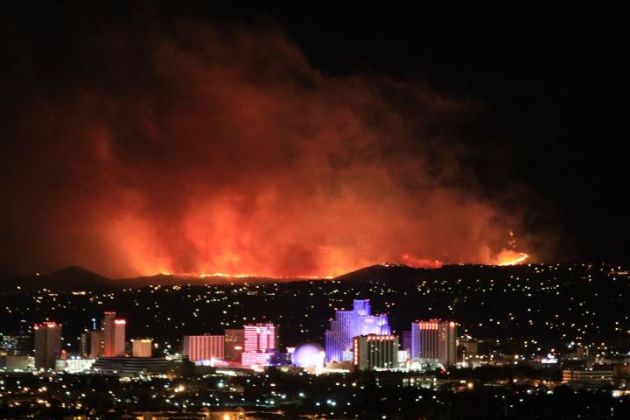
State Of Emergency In Reno Area. Wildfires are burning out of control. Nearly 10,000 residents have already been evacuated, at least 90 schools closed and 20 homes lost to fast-moving flames. Details below.
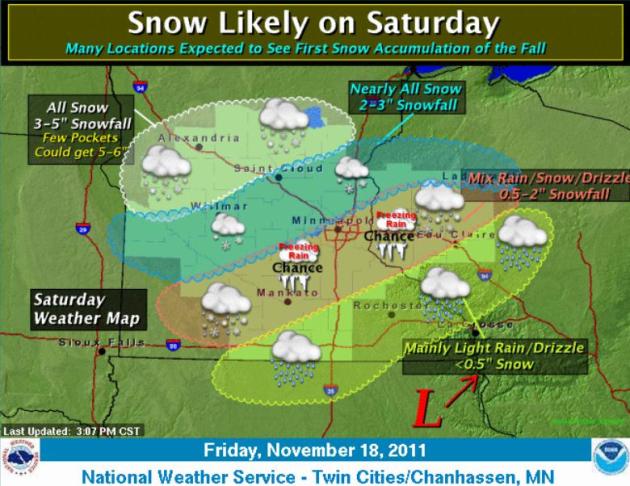
Mixed Bag. Here's a good explanation of today's "precipitation event", mostly rain and freezing rain south/east of the Twin Cities, a brief period of rain changing to wet snow here in the Twin Cities this afternoon, and all snow toward Stillmar, St. Cloud and the Lake Mille Lacs area - northeast to Duluth, where 3-6" may accumulate.
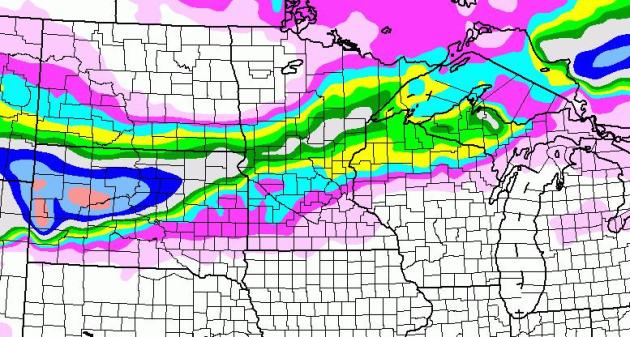
1 to 3 to 6". Is that a big enough range? I'm still leaning toward 1-3" for the immediate Twin Cities metro (best chance of 2 or 3" over the north metro). 3-4" may fall on St. Cloud, with a narrow band of 6" possible from Alexandria to Brainered to Duluth by midnight Saturday night. Guidance above is from the NAM.
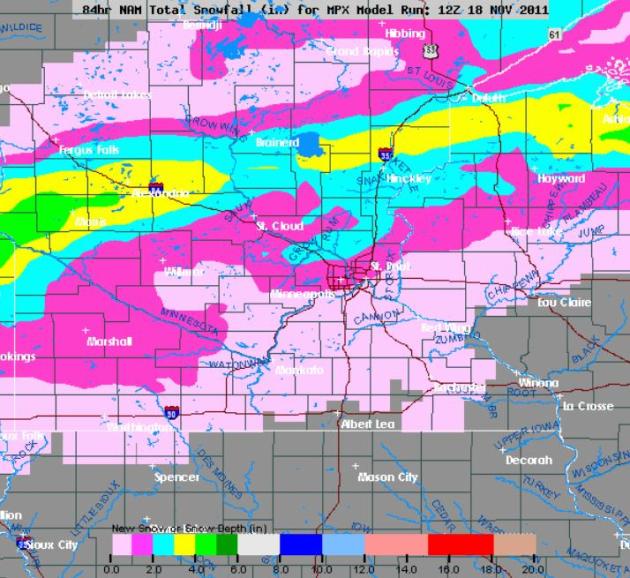
Almost Plowable. I suspect it may be just enough snow to shovel and plow by Saturday night, many spots picking up 2 or 3", less south of the Twin Cities metro.
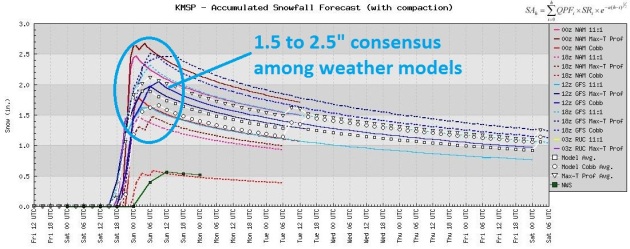
Consensus. All the various models are converging on a 1.5 to 2.5" accumulation. Some of the wildcards: how long will it take for a cold rain to change over to snow? Will snow melt on contact with warmer surfaces? Air temperatures should be in the mid 30s, just a few degrees above freezing, so most roads will probably stay wet until dusk, around 5 pm or so. Count on some slushy and slippery roads this evening and tonight.
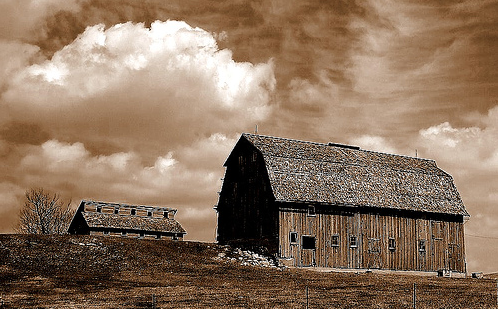
Autumn: Much Too Dry. Here's a good recap of our (historic) lack of rain this meteorological autumn, from Mark Seeley and his must-read WeatherTalk blog: "The Minnesota State Climatology Office reports that this fall season (September through mid-November) has been one of the driest in history. Many observers have reported 1 inch or less of total rainfall since September 1st, and with the soil freezing up there is less prospect for moisture recharge before the winter season settles in. Depending on the amount of precipitation that falls before the end of November it may be the driest in history for the Twin Cities Metro Area going all the way back to 1871, as well as other areas of the state.
You can read more at....
http://climate.umn.edu/doc/journal/drought_2011.htm
NOAA reported this week that October, 2011 was the 8th warmest since 1880 globally, and Arctic sea ice extent was the second smallest since satellite observations began in 1979. You can read more at...
http://www.noaanews.noaa.gov/stories2011/20111115_globalstats.html
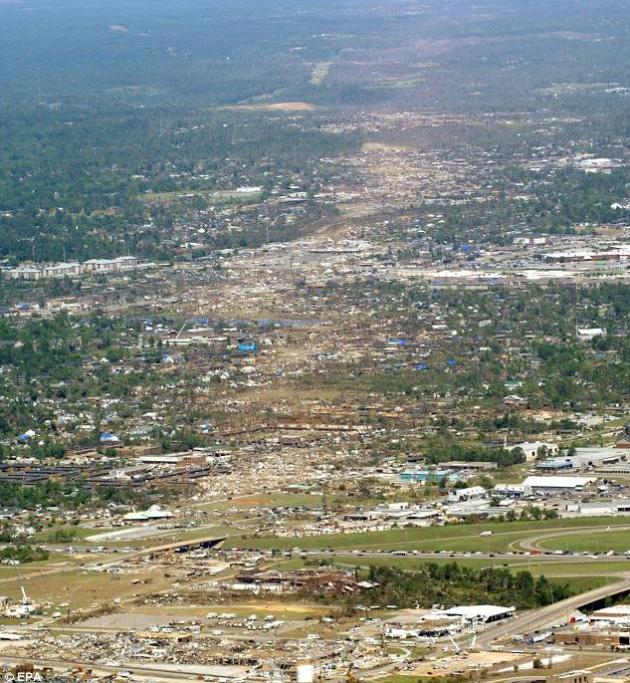
Storms Cause Damage, Deaths, Injuries In South. Reuters has the story, and some remarkable tornado statistics for 2011: "Typically we see our severe weather season during the spring months, but we also have a secondary peak in November," said Neil Dixon, meteorologist with the National Weather Service at Greenville/Spartanburg in South Carolina. "In November, we see strong cold fronts," he said. "These strong cold fronts move along from the western Carolinas, and the strong wind shear moves ahead of that." A series of deadly tornadoes battered the Southeast in April, killing an estimated 364 people. With the latest deaths, the number of tornado fatalities for 2011 will likely top 550, said Greg Carbin, warning coordination meteorologist at the National Oceanic and Atmospheric Administration's Storm Prediction Center. This year already ranks as the deadliest from tornadoes since the National Weather Service began its database in 1950, he said. "The number of fatalities this year directly due to tornadoes is 100 times greater than the recent decades' annual average," Carbin said."
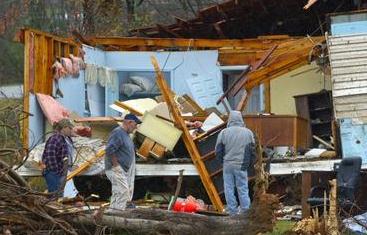
"It Must Have Been God's Wrath". Greensboro's News & Record has more details on Wednesday's unusual, late-season tornado outbreak: "THOMASVILLE — Kindley Road resident Daniel Byerly was happy Thursday to face the kind of transportation hassles that hit you after your car has been totaled. His 1997 Ford Escort sat crumpled where a rampaging tornado tossed it the day before, buried by layers of splintered wood and random debris. But car troubles were a breeze compared with the serious injury that he, his wife and young son narrowly escaped the night before: They fled their mobile home to seek shelter in what turned out to be a poor choice, a nearby amusement center in the very heart of the storm."
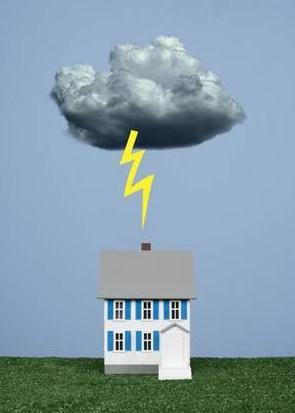
Get Your Home Insurer To Pay Up - Fast. Has your home been impacted by a natural disaster in 2011, even minor damage? USA Today has some good advice: "Having your home damaged in a hurricane or tornado is terrifying. The last thing you need is the frustration of waiting for your insurance company to cover the repairs. Here are some ways to speed the process:
Call immediately.
It’s in the insurance company’s interest to settle your claim ASAP. “Your policy contains additional living-expense coverage, which pays the extra costs of eating out and staying in a hotel,” says Jack Hungelmann, author of Insurance for Dummies."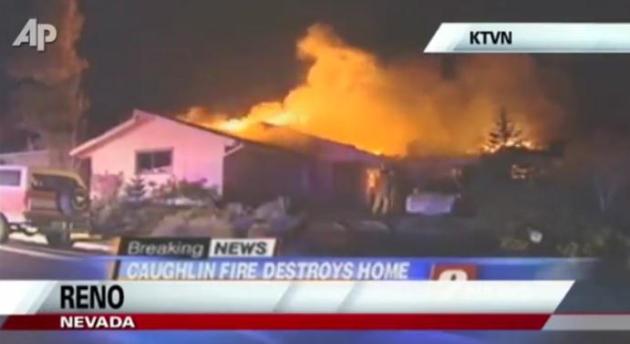
Reno Wildfires Burns 20 Homes, Closes 90 Schools. Here's a clip from AP and YouTube: "Officials say a wind-whipped, 400-acre wildfire in Reno, Nevada has destroyed 20 homes, injured several people and forced evacuations."
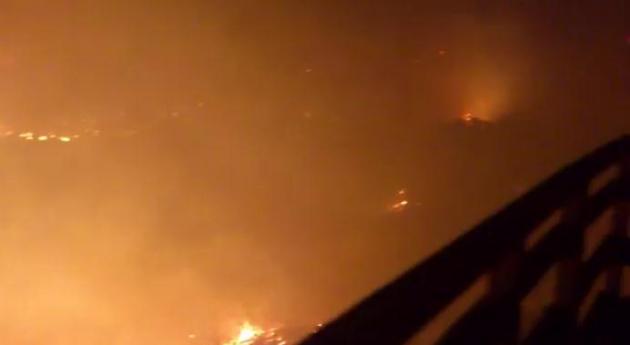
Fire At Skyline Canyon. As many as 9,500 people have been evacuated in the Reno area. Check out this YouTube footage from Andrew George. How would you like to walk out on your deck and look at this? Incredible!
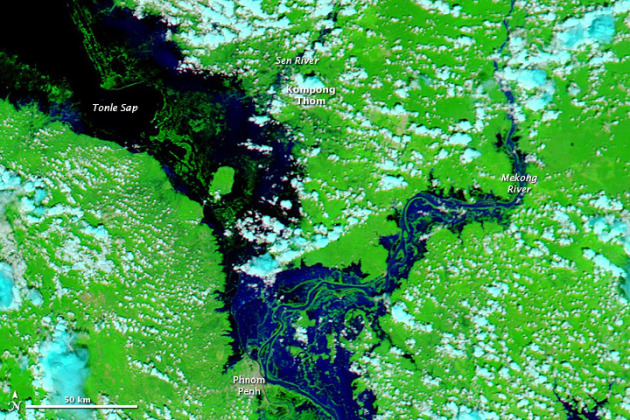
Silent Flood Misery For 1.8 Million In Cambodia, Vietnam. The story from AP and CBS News: "(AP) CHAKTO LORK, Cambodia — Hang Davi's life now depends on her husband's luck. If he catches fish in the stagnant floodwaters that have turned her Cambodian village into a lake, the family eats. If not, they go to bed hungry and pray his losing streak won't last another day. For two months Davi has waited for the filthy water to retreat, as it does every year, so she can work in the surrounding rice fields. But the stubborn brown pool has continued to lap high against the bamboo ladder leading into her tiny stilt shack, trapping her inside. She and about 1.8 million people across Cambodia and Vietnam are currently suffering a silent misery from the worst flooding in a decade. Thailand's flood crisis has received extensive media coverage, especially as the waters inch toward central Bangkok, but less attention has been paid to its much poorer neighbors, where many rural families still waiting for water levels to drop have received little or no aid from their governments or international organizations." (photo above courtesy of NASA).
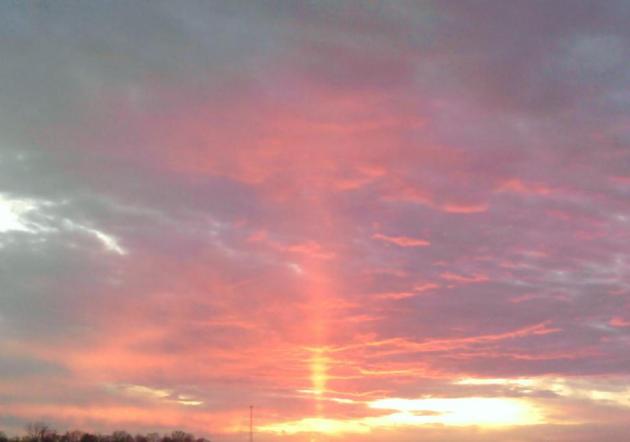
"Sun Pillar". Thanks to WeatherNation meteorologist Bryan Karrick (who was a star in Des Moines, where he was a legendary morning meteorologist at the #1 rated KCCI-TV - we're very lucky to have him up here). Using his cell phone he captured a "sun pillar", the result of sunlight reflecting off falling, hexagonal, plate-like ice crystals. I know - more than you wanted to know...
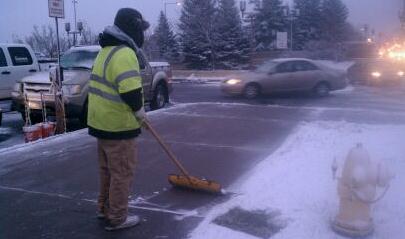
"Shovel-able". It's a mouthful ("plowable" is easier, it just rolls off the tongue). Thanks to WeatherNation meteorologist Todd Nelson for passing on this photo of a fresh snowfall up in the Duluth, Minnesota area - taken mid afternoon on Friday.
Climate Stories....
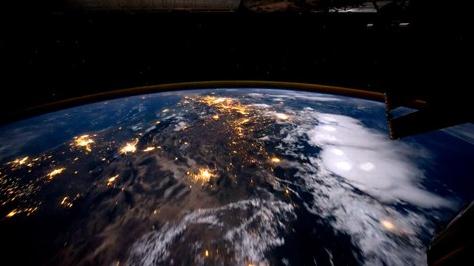
Climate Change Report: Weather Extremes Increasing. Here's a good recap of the latest IPCC report from ABC News: "In carefully negotiated language worked out among scientists from many countries, a new report on the effects of a warming climate on the world’s weather by the U.N.-sponsored Intergovernmental Panel on Climate Change (IPCC) says that much of the world is already seeing more weather “extremes” — heavier downpours and more intense heat waves — at least partly because of the buildup of greenhouse gases in the atmosphere. The report is called “Special Report on Managing the Risks of Extreme Events and Disasters to Advance Climate Change Adaptation” — shortened to “SREX.” A draft summary was obtained by ABC News. A sampling of lines from it: On temperatures: “It is very likely that there has been an overall decrease in the number of cold days and nights, and an overall increase in the number of warm days and nights, on the global scale, i.e., for most land areas with sufficient data.”
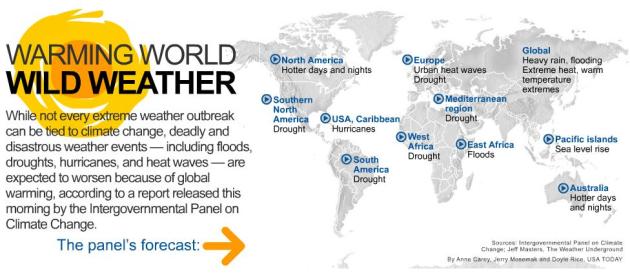
Report: Climate Change Worsens Extreme Weather Events. Another summary of the new paper from USA Today: "The IPCC and other scientific groups, such as the U.S. National Academy of Sciences, have reconfirmed over the past decade that greenhouse gas emissions from burning fossil fuels, and deforestation, have led to a 1.4-degree rise in average global-surface-temperatures worldwide in the past century. That rise, the IPCC says, is likely to increase, with at least 2-in-3 odds that climate extremes have already worsened because of man-made greenhouse gases....
The IPCC report's projection for the next century:
• Worse heat waves worldwide are "very likely."
• "Medium confidence" exists that droughts will worsen across southern North America, the Mediterranean and elsewhere.
• "High confidence" exists that economic losses from weather disasters are increasing, with huge year-to-year swings, largely due to more people, urbanization and coastal development."
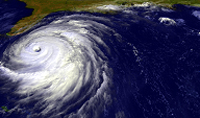
IPCC Report: Global Warming - And Changing Population - Will Worsen The Toll Of Extreme Weather. Time Magazine has a good overview: "Maybe we should retire the term "global warming," which makes climate change sound like a nice, pleasant bath. It's true that climate change—caused chiefly by the rapid increase in manmade carbon emissions—will result in warmer temperatures, fewer cold days and longer and more intense heat waves. But the real damage, both economically and in human lives, is likely to be inflicted by an increase or amplification of extreme weather events—floods, storms, droughts. The trouble is that attributing extreme events to climate change has always been challenging, which makes it that much more difficult to predict how weather will respond to warming. But scientists are getting better, and a new report (PDF) out today from the Intergovernmental Panel on Climate Change has a clear message: more carbon emissions will mean more dangerous extreme weather events. "We need to be worried," said Maarten van Aalst, the director of the International Red Cross/Red Crescent Climate Centre and a lead author on the IPCC study, at a news conference in Kampala, Uganda. "Risk has already increased dramatically."
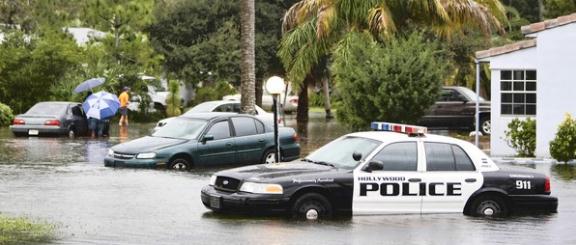
Climate Change Begins To Affect South Florida. The Sun-Sentinel has a story about how a warmer, wetter atmosphere is already impacting the Sunshine State: "The debate over global warming tends to focus on future perils — scary maps of flooded suburbs, the northward creep of tropical diseases, rich farmland turning into desert. But some of the effects of global warming have already arrived in South Florida, as coastal cities flood more frequently and overheated corals turn white and die. The region's temperatures have not gone up, however, and many scientists say climate change has had little effect on hurricanes. While most climate scientists agree the Earth has warmed over the past century, they say it's extremely difficult to assess the impact of slight temperature increases on complex natural systems. "There is general consensus among scientists that climate change is occurring and that human activities are influencing that," said James W. Jones, director of the Florida Climate Institute at the University of Florida. "A lot of the controversy stems from the fact there's a lot of uncertainty about how much it's changing and how fast it's changing. … We need to go into the middle of this debate and not say nothing is going to happen and not say the sky is falling."